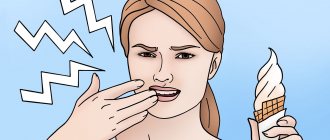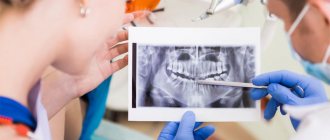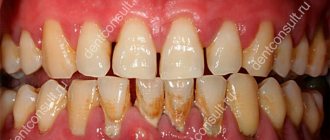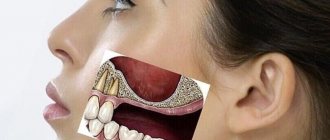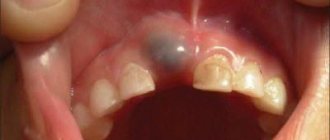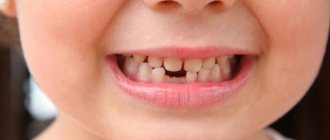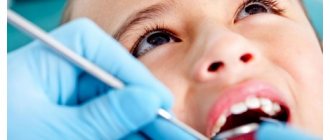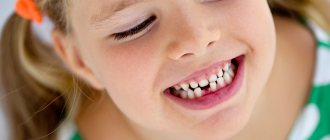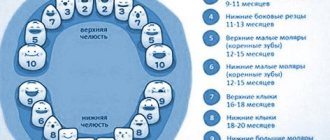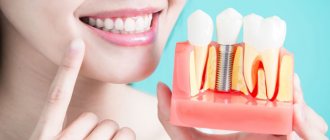Regular oral hygiene plays an important role in maintaining dental health and preventing various diseases.
Almost everyone knows about how dental hygiene affects the general condition of the body. And in fact, anyone can debate this topic.
But, nevertheless, the undeniable fact is that the general health of a person largely depends on the health of teeth and gums. This has been confirmed by various scientific medical studies. Inflammatory processes on the teeth and gums, as well as heavy plaque and other deposits lead to an increase in the number of pathogenic microbes that can provoke a large number of diseases. Heart and vascular diseases, the development of diabetes, complications during pregnancy and premature birth - these and other health problems can arise due to small microbes on the teeth.
As medical dental practice shows, caries, gingivitis and tartar almost always occur due to improper oral hygiene. Having heard the phrase “you are brushing your teeth incorrectly” from a dentist, most patients are very surprised and begin to give other reasons for the development of their diseases, be it heredity, sensitive enamel or crowded teeth.
What is the right and wrong way to care for your teeth?
There are research results that clearly show that 99%
Problems of teeth and gums arise from improper care.
And there is data that shows the opposite picture, as in Switzerland, where regular oral hygiene is instilled almost from infancy. Only 3% of the population suffers from caries. Children are taught to brush their teeth correctly at an early age, special lessons are given at school, and they need to visit the dentist every six months.
As they say, feel the difference.
The formula for dental health looks like this:
proper home care + regular visits to the dentist = healthy teeth and gums
According to statistics, in Russia only 30% of the population brushes their teeth correctly; the rest, alas, do not do this for various reasons. Most often this is due to the inability to brush your teeth properly and a lax attitude towards your health.
Why do you need to brush your teeth?
Oral hygiene is not only a matter of aesthetics. It is due to medical reasons. A plaque constantly forms on the enamel, consisting of: • food particles; • saliva; • waste products of microorganisms inhabiting the oral cavity.
The process of plaque deposition does not depend on whether a person ate in the interval between brushings. If it is not removed, over time it turns to stone. Contamination not only creates a cosmetic defect. Deposits contribute to the violation of the integrity of the enamel. Pathogenic bacteria penetrate into the resulting cracks and actively multiply under conditions of poor hygiene. This is how caries begins with all the known consequences. These microorganisms also attack the gums. In people who neglect to brush their teeth, gingivitis becomes chronic. If the inflammation is not treated, complications in the form of periodontitis and periodontal disease are possible. As a result, the root no longer holds in the socket and the tooth falls out.
What happens if you don't maintain hygiene?
If you neglect the process of oral hygiene care, it can ultimately lead to many unpleasant consequences. Among them:
- Caries;
- Gingivitis (gum inflammation);
- Candidiasis (infection caused by bacteria of the genus Candida. Manifests itself in the form of a yellowish and grayish coating);
- Periodontitis. This is an inflammatory disease of the gums, characterized by tissue atrophy;
- Stomatitis (inflammation of the oral mucosa).
Free webinars on anti-aging medicine Learn about the features of the Anti-Age Expert International School, as well as the opportunities for improving your medical practice every day. The webinar program also includes fascinating reviews of innovations in anti-aging medicine and analyzes of the most complex clinical cases with recommendations that really work
Find out more
How to brush your teeth correctly?
It is a mistaken idea that everyone can do this. There are a number of rules, many of which are either unknown or ignored. However, only compliance with them guarantees effective cleaning of the enamel: • Carrying out hygiene procedures not only at home, but also at the dentist. • Rational selection of brushes and paste. • Using the optimal teeth brushing method. • Using dental floss, brushes and mouthwash. • Taking into account the condition of the gums, the presence of braces and dentures. • Compliance with the rules for storing, cleaning and replacing brushes.
Tablets for determining plaque will help you understand whether you have achieved your goal. They demonstrate whether unwanted deposits are present on the enamel. They also suggest which areas are not being worked through carefully enough.
Choosing a toothbrush
To completely clean the enamel from plaque, you need to choose a suitable brush. The easiest way to do this is by material. There are two options here - natural and synthetic. It is better to give preference to the latter, since they are quite elastic, and the tips of the hairs are usually rounded, which is safer for the gums. Bacteria multiply faster on natural materials.
In terms of the stiffness of the bristles, toothbrushes are: • Soft. They are best taken for children, adolescents and people suffering from gingivitis. • Average. A universal option for people without dental problems. • Tough. They help fight hard plaque and can be used only when indicated.
The configuration of the bristles should be discussed with your dentist. It will tell you where more sediment collects. For example, if you need to better work on the necks of teeth, bristles collected in bunches can handle this.
Pasta selection
Pastes are hygienic, preventive and therapeutic. The first ones solve the only problem - clean the enamel. The latter, due to the antiseptic component, help prevent the development of gingivitis and caries. Still others are prescribed by dentists for therapeutic purposes; it is better not to use them on your own.
Toothpastes are also distinguished according to the results of use: • whitening - slightly lighten the enamel, but you should not expect drastic changes from them; • strengthening – contain fluoride, good for enamel health; • desensitizing - reduce sensitivity; • anti-inflammatory - help with gingivitis.
Abrasiveness characterizes the degree of impact on plaque. The average value of this indicator is from 50 to 80. Higher values can be taken occasionally to lighten teeth. Lower abrasiveness is indicated for sensitive enamel and gums.
Caring for sutures after surgery
The suture area is the most delicate and easily susceptible to various negative factors after sinus lifting. That is why it is advisable to start caring for the oral cavity after sinus lifting with the treatment of postoperative sutures. To speed up the healing process of sutures and minimize any external influences on them, special dental adhesive pastes and gels are used. Also, the use of these products allows you to eliminate discomfort in the oral cavity, which is caused by the presence of suture material in it. You need to apply the gel or paste every time after eating, using antiseptic agents first. After application, it is advisable not to eat for several hours.
It is very important not to disturb the suture area, limit active facial expressions, and do not touch the operation site with your tongue. It is strictly forbidden to use hot compresses, and you should also not consume hot food or drinks. To speed up the healing of sutures, it is also better not to visit saunas, steam baths and other places with sudden temperature changes.
Proper brushing of teeth: sequence of movements
For hygiene purposes, you need to accustom yourself to a certain sequence of movements.
After squeezing the paste onto the brush, you must: • apply it to the teeth at an angle of 45 or 90 degrees; • pass each one 3-4 times in the direction from the gums to the cutting edge; • treat chewing surfaces with circular movements; • Allow at least 30 seconds of brushing for each half of the jaw. Depending on the location of the brush and the direction of movement, there are three methods of brushing teeth. The most famous (90 degree brush, top to bottom movements) is the Leonard method.
The Bass method involves choosing an angle of 45 degrees and making vibrating movements. It is good because the bristles penetrate into the interdental spaces and partially work out the contact surfaces. With the Fones method, an angle of 90 degrees is taken and the brush moves in a circle. This further massages the gums, which improves blood circulation and protects against inflammatory processes.
Additional oral cleansing
Oral hygiene is not limited to two rows of teeth. For complete cleansing it is necessary to treat: • Interdental spaces. Dental floss or a brush will help remove plaque. • Language. To do this, use the relief surface of the back of the toothbrush or a special scraper. • Gums. They are partly cleaned with a brush: at an angle of 45 degrees, the bristles approach the edge and capture deposits. Rinse aid also helps. • Cheeks. You can go over them with the back of the brush, but they require more rinsing.
You need to start by removing the largest food debris. To do this, just rinse your mouth with water. Then comes the turn of fragments stuck in the interdental spaces - this is where floss comes to the rescue. Now you can take up the brush with the paste. Rinse aid is used last - to create a protective layer.
Clinical researches
ASEPTA toothpastes are clinically proven effective. For example, it was confirmed that regular use of professional toothpaste ASEPTA COFFEE AND TOBACCO for a month improved the hydration of the mucous membrane by 3.3 times, the remineralizing efficiency increased by 3.9 times, at the same time, the cleansing effect had increasing dynamics and reached 60 .5% at 4 weeks of use.
Sources:
- Clinical and laboratory assessment of the influence of domestic therapeutic and prophylactic toothpaste based on plant extracts on the condition of the oral cavity in patients with simple marginal gingivitis. Doctor of Medical Sciences, Professor Elovikova T.M.1, Candidate of Chemical Sciences, Associate Professor Ermishina E.Yu. 2, Doctor of Technical Sciences Associate Professor Belokonova N.A. 2 Department of Therapeutic Dentistry USMU1, Department of General Chemistry USMU2
- Report on determining/confirming the preventive properties of toothpaste “ASEPTA PLUS” COFFEE and TOBACCO Author: doctor-researcher A.A. Leontyev, head Department of Preventive Dentistry, Doctor of Medical Sciences, Professor S.B. Ulitovsky. First St. Petersburg State Medical University named after. acad. I.P. Pavlova, Department of Preventive Dentistry
- Report on determining/confirming the preventive properties of toothpaste “ASEPTA PLUS” GENTLE WHITENING” Author: doctor-researcher A.A. Leontyev, head Department of Preventive Dentistry, Doctor of Medical Sciences, Professor S.B. Ulitovsky First St. Petersburg State Medical University named after. acad. I.P. Pavlova, Department of Preventive Dentistry
How to brush your teeth with gingivitis?
Inflammation of soft tissues is not a reason to neglect hygiene. On the contrary, the more often cleansing is done, the less chance bacteria have to support the inflammatory process.
However, you need to take precautions: • choose brushes with soft bristles (preferably rounded); • choose a paste with low abrasiveness and containing medicinal herbs; • give preference to the Bass method, and abstain from the Fones method until remission; • move your hand more carefully to avoid painful sensations.
Cleaning time should not be shortened, even if the procedure causes discomfort. Sometimes dentists even recommend increasing it. Inflammation of the gums is accompanied by the formation of pockets. Where their edges lag behind, stone grows with particular intensity. This place deserves more careful study.
How to clean dental structures?
Dental structures in the mouth make adjustments to the cleaning process: • Crowns. More attention should be paid to the area where the gums come into contact with the prosthesis. • Bridges. A round mono-tuft brush is more suitable for them. • Veneers. The teeth where they are installed cannot be treated with floss. The ban does not apply to other methods. • Braces. The space under the arch and the area adjacent to the enamel is cleaned with brushes.
In all of the above cases, it is necessary to use an irrigator. Conventional cleaning devices are not able to penetrate all the places where plaque accumulates. There are no barriers for water. Under the pressure set by the device, it knocks out stuck food fragments, preventing them from decomposing or turning into stone.
How do plaque tablets work?
We usually contact a dentist to assess the quality of oral hygiene. It identifies areas that are not cleaned effectively and makes recommendations for replacing the paste or brush. But in between visits to the clinic, you can cope without the help of a doctor.
Special tablets, developed by the Swiss company CURADEN, will help with this. They are part of the CURAPROX range of dental care products. Determination of plaque occurs as follows: • the tablet is diluted in water; • after brushing, a person rinses his mouth with this solution, distributing it over his teeth; • deposits are stained, clean enamel remains intact.
The tablets also help distinguish soft plaque from tartar. The first one becomes pink, the second one becomes dark blue. This way you can understand whether it’s time to go for ultrasonic cleaning.
When to wean off a pacifier to avoid problems with bite
The habit of putting everything in the mouth can lead to poor articulation of the tongue, lips and jaw when swallowing, as well as an open bite. Studies have shown that a child can be weaned off the habit of sucking a pacifier up to three or four years of age. But since such a habit has biomechanical reasons, it can be difficult to wean a child - in this case, the help of a psychotherapist is necessary.
To avoid problems with bite, it is important to give up the pacifier in time. By 8–9 months, if complementary foods are introduced in a timely manner, the sucking reflex is gradually replaced by a chewing reflex. It is from this age that it is recommended to start giving the baby a pacifier less - it will be psychologically and physiologically easier for him to wean himself off the habit.
Consequences of not brushing your teeth properly
Proper and timely cleaning of dental plaque is protection against oral diseases.
If you neglect it, the consequences will only increase: • Tartar forms. It gives off an unpleasant odor. If you do not carry out ultrasonic cleaning, it will become a favorite place for bacteria. • Bacteria will destroy the enamel. The abundance of pathogenic microorganisms quickly leads to caries. • Bacteria will cause your gums to become inflamed. Soft tissues are no less sensitive to them than hard ones. And this means bleeding, swelling and an unpleasant odor.
Possible complications are also worth mentioning. Caries develops into pulpitis, which requires removal of the nerve. This deprives the tooth of nutrition, as a result of which it sooner or later collapses. Progressive gingivitis is fraught with periodontitis and periodontal disease. Lack of oral hygiene leads to tooth loss. Restoring them is more expensive than the cost of a brush, paste and professional cleaning. Therefore, it is better to remember these simple rules and follow them.
How often should you visit the dentist and for what purpose?
The answer to this question depends on the condition of the oral cavity. If there are no problems, it is enough to undergo examinations 2 times a year. If you have chronic diseases (in particular, diabetes, etc.), you should visit a doctor at least once every 3 months.
If the specialist does not identify any pathologies, he will carry out professional cleaning, which is recommended to be performed 2 times a year. If violations are detected, timely measures will be taken. Dental treatment at the initial stage is much easier and faster. It also helps save money and guarantees health.
